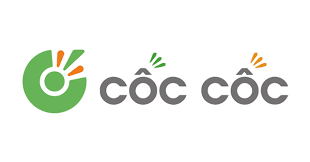

SDG3 target 3.4: By 2030, reduce by one third premature mortality from non-communicable diseases through prevention and treatment and promote mental health and well-being.
0
media impressions
0
click throughs
0
new browsers installed
Where: Vietnam
The challenge
It’s hard to generate compassion and empathy without understanding. Research showed that despite almost half a million Vietnamese people suffering from Alzheimer’s disease, awareness of the disease and its symptoms was critically low. In addition to this, societal stigmas around the disease meant many sufferers did not admit they had the condition or seek treatment.
How could we raise awareness, create conversation and prompt visits to medical specialists about this illness when it was such a taboo subject?
The execution
The answer lay in combining an online technology, with which Vietnamese engage every day, with an attention-grabbing creative idea. We worked with Cốc Cốc, a Vietnamese browser and search engine with 22 million users, to develop “The Forgotten Tab” campaign.
The project uses Cốc Cốc's existing incognito or private browsing mode to call attention to the forgetfulness that characterises Alzheimer's. When using incognito mode, pages viewed do not stick around in the browser history, cookie store or search history after the tab is closed. Essentially, they are not remembered.
The private browser was renamed “The Forgetting Tab” and users who wanted to surf incognito were served an emotional video message about Alzheimer's to inform them about this serious, life-debilitating disease in a powerful way. They could then click through for more information and guides to practical help.
“The Forgetting Tab” name perfectly fitted the campaign because some users of Cốc Cốc make the choice to forget their browsing history, but Alzheimer sufferers have no choice in losing their memories of the precious people and moments in their life.
The campaign launch was supported by media activity including web and video banner ads, keyword search ads, browser skins and a PR campaign targeting 30 leading Vietnamese media channels and platforms.
The Forgetting Tab campaign reminded people to help those who forget, to learn more about the disease and to be more sympathetic to sufferers and their caregivers.
The results
The Forgetting Tab provided a simple, innovative solution to a growing problem in Vietnam. In its first week alone, the campaign achieved 729,078 media impressions, attracted 8,818 click-throughs and drove 380,730 new browsers to be installed.
Mr. Victor Lavrenko, CEO of Cốc Cốc, said: “We decided to partner with isobar on building awareness for Alzheimer's because while the disease is severe, there is no cure at present. We hope that our campaign can get people talking and help better the situation for the many sufferers and their caregivers. And, who knows? It might perhaps inspire one of our many young users to go to university, study neuroscience, and even invent a cure in the future.”
U.S. Pharmaceutical Manufacturer
From a diagnostic and descriptive analysis approach, the solution evolved into a robust advanced analytics omnichannel measurement framework that was proactive and prescriptive in nature.
Suraksha Ka Teeka
As per the Global Fund 2020-22 Report, Malaria is one of the major public health problems in India. With children 5 times more vulnerable to this disease, their cases were witnessing a sudden ou...
The Everything Book
A pioneer in modern education, The Everything Book is an internet signal aggregator. It houses a cloud-based AI packet broadcaster and assembler service that combines weak 2G mobile networks aro...
Foot Locker
Foot Locker is always looking for new ways to innovate and improve the shopping experience for its customers. As a result, the brand asked dentsu gaming to integrate a new augmented reality feat...
